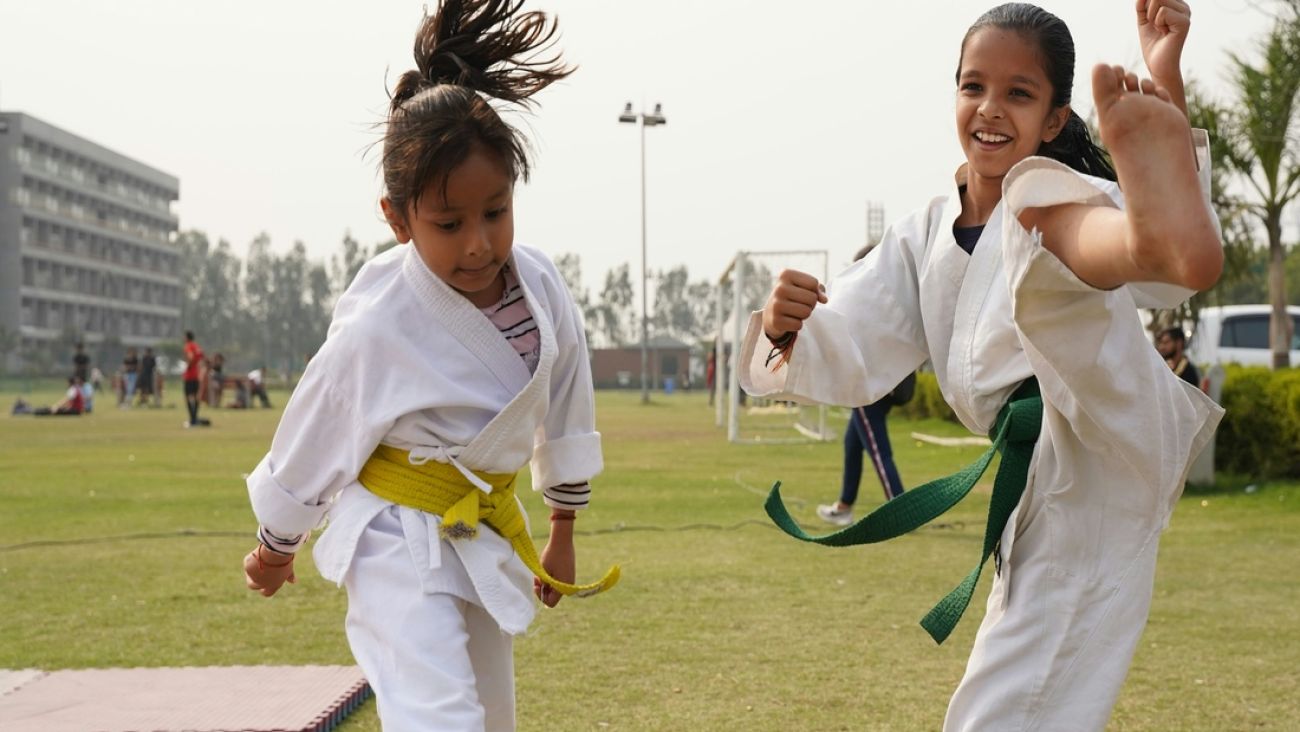The Impact of Sports on Girls’ Mental Health
As the teen mental health crisis continues to engulf the United States, recent research from the Women’s Sports Foundation (WSF) demonstrates the transformative power of sports to enhance young girls’ mental health and well-being. With rates of anxiety and depression still disproportionately high among girls, this study highlights the critical role sports can play in alleviating both symptoms while also providing a sense of purpose and accomplishment.
According to the 2021 U.S. Surgeon General’s Advisory on Youth Mental Health, in 2019, one in three high school students in the United States admitted to struggling with persistent feelings of sadness or hopelessness. This number represents a staggering 40 percent increase from 2009. Teen girls have particularly borne the brunt of the crisis, with more than half of teen girls reporting such feelings in 2023, according to the CDC. Shockingly, suicide remains the second leading cause of death for teens ages 10 to 14 and young adults ages 20 to 34, with one in three teen girls reported seriously considering suicide in 2021.
Amid these staggering statistics, sports played in a supportive and inclusive environment stand out for their ability to help girls not only survive, but thrive. The recently published WSF study, titled “Thriving through Sports: The Transformative Impact on Girls’ Mental Health,” provides new data and actionable recommendations to continue the fight for greater equity in sports given their positive benefits for mental health. 50 years after the passage of the landmark Title IX sex discrimination law, girls still lag behind their male peers in sports participation. According to WSF, approximately 40% of teenage girls are not actively involved in sports. Additionally, according to the National Federation of State High School Associations, boys’ sports are invested $1.13 million more than girls.
The report found that playing sports can actually reduce depression and anxiety. In fact, research shows that girls who play sports are 1.5 to 2.5 times less likely to suffer from mental illness than girls who have never played sports. Only 17% of girls who play sports suffer from moderate to high levels of depression, compared to 29% of girls who have never played sports. In addition to these direct health benefits, sports have been found to have both promotive and protective effects, including 1.5 times higher scores for peer relationships and 1.5 times higher levels of meaning and purpose. These advantages spanned race, family income, parental education, gender identity, and disability status.
“Many young people struggle with mental health issues. It’s a prominent public health issue,” said Claudia Reardon, PhD, professor in the Department of Psychiatry at the UW School of Medicine and Public Health. “This new WSF study shows that sports can play an important role in supporting girls’ mental health. In addition to physical activity, when girls play, they build relationships with their peers, learn to work in a team, and more.”
WSF CEO Danette Leighton echoed this sentiment. She said: “The ongoing mental health crisis in society – across all ages, but especially young people – is a huge challenge that requires action from all of us. Our data gives us hope that, if done right, sport can provide girls with the tools to support their mental health. When we help girls thrive, we all win.” The Thriving Through Sport study is just the latest data from the foundation, which has a history of using evidence-based research, advocacy and community programmes to help girls excel in sport. Founded in 1974, WSF was one of the first organisations to promote the powerful connection between sporting opportunities, equity and society.
Given the positive impact of sport on mental health, Leighton said WSF is more focused than ever on improving opportunities for girls to participate in sport. “Equal opportunities are particularly important given that this new research shows that the benefits of sport on mental health can be a great equaliser,” she wrote in the report. “When girls play in a sporting environment that prioritises wellbeing, they are able to play, compete and lead in sport and in life.”







